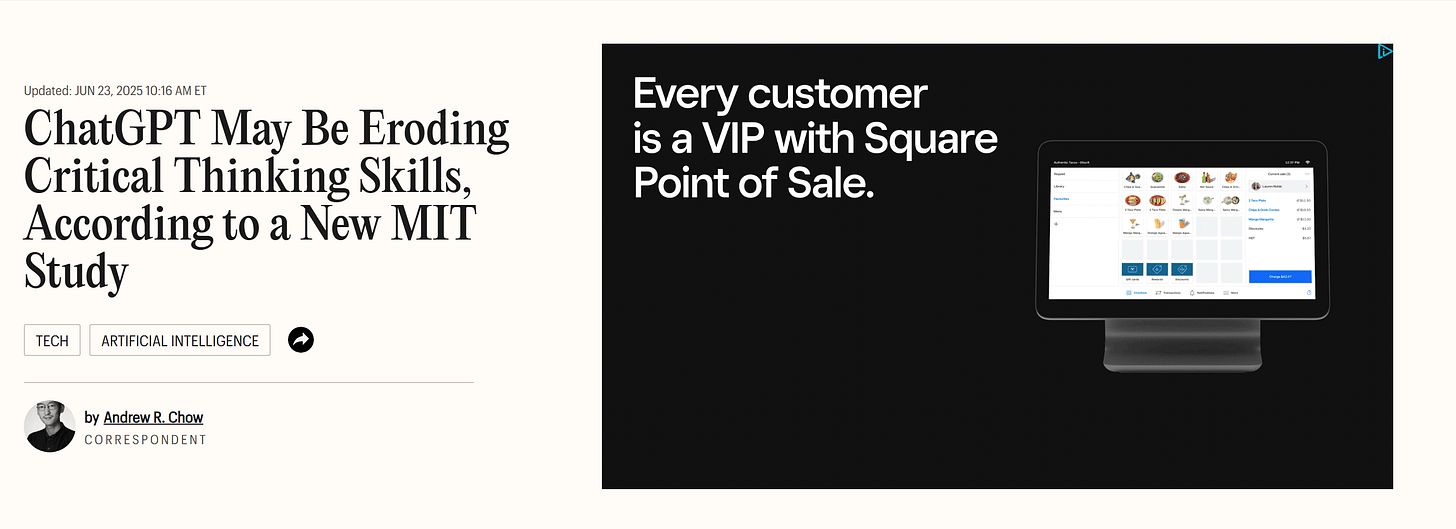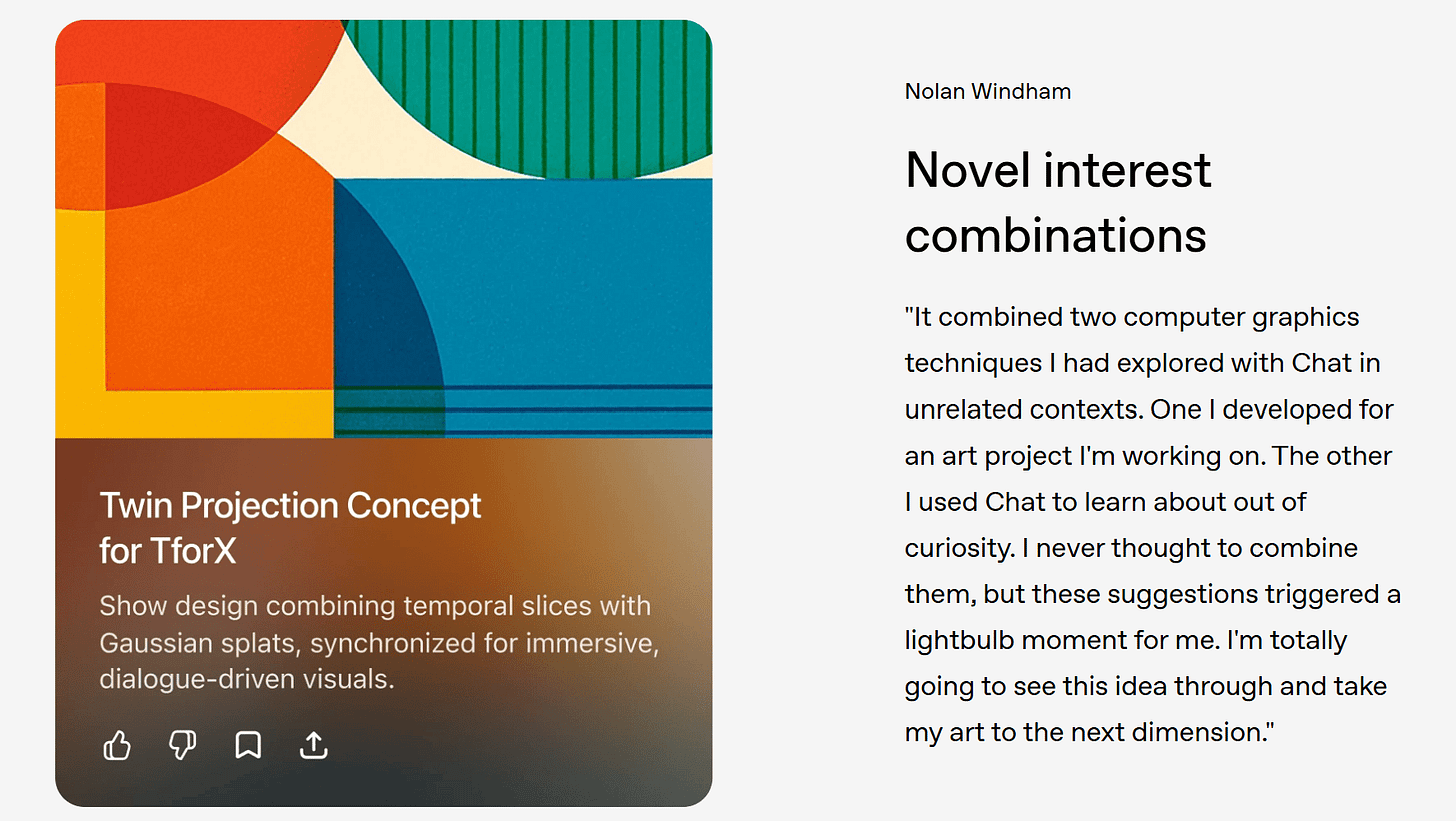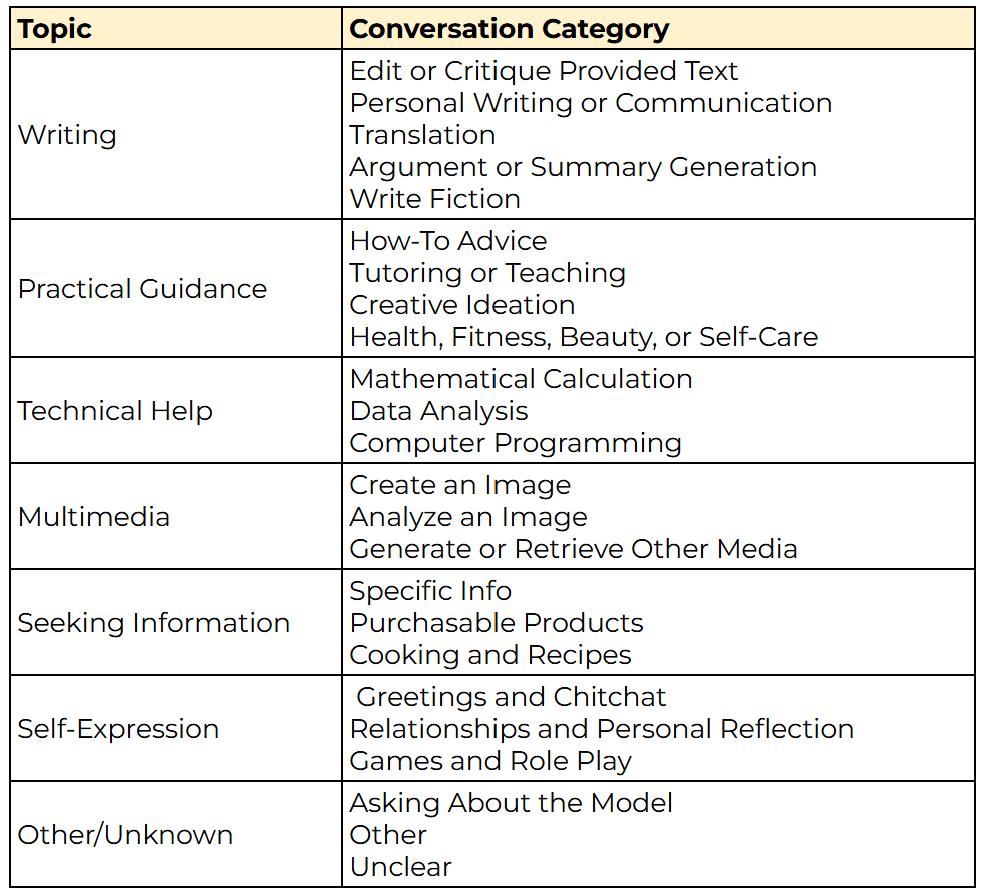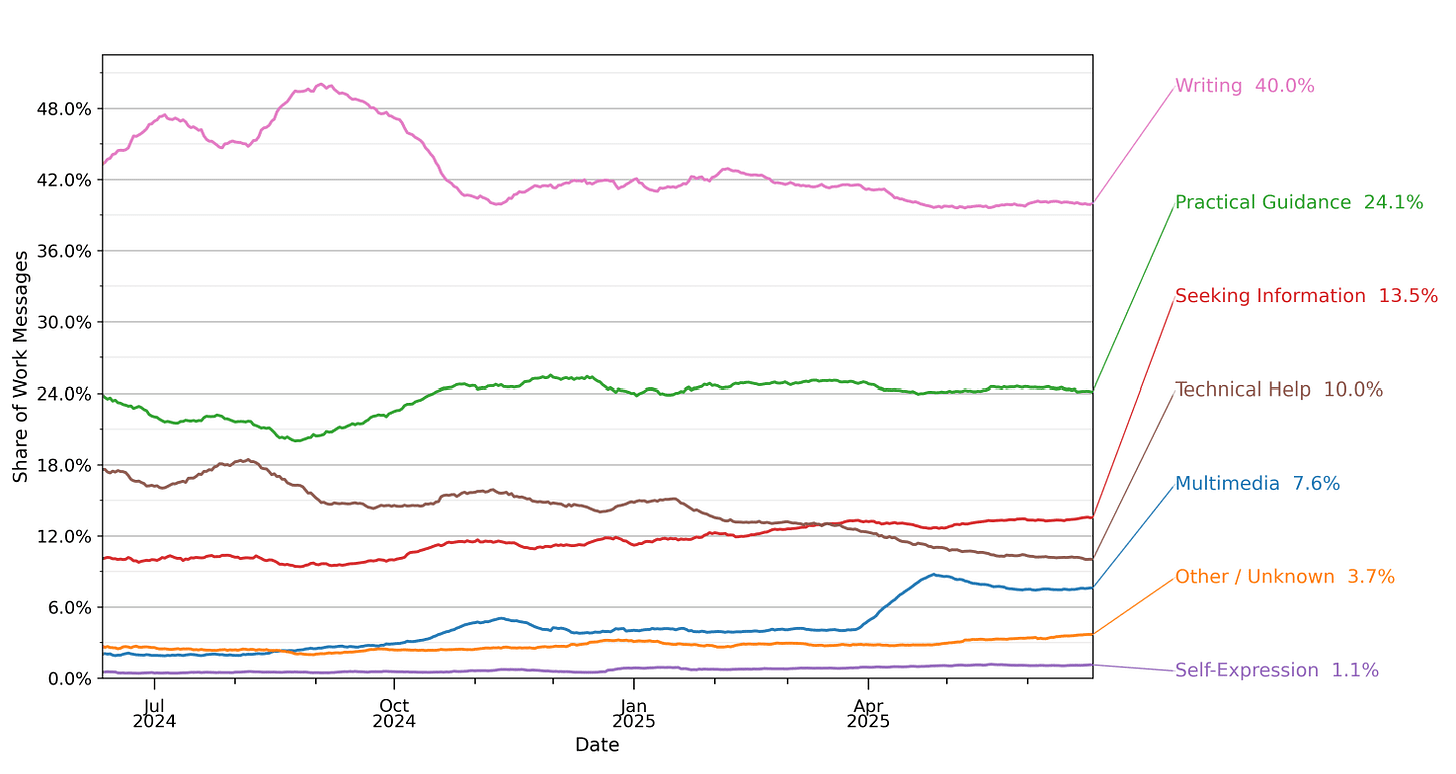How Are People Using LLMs
Hello Riddlers!
There's been some studies about chatgpt, usage, and how it impacts our brains (turns out not in a good way) 🤷... [1]
But we never really understood how people use chatgpt.
In today's newsletter, I'm diving into the latest and biggest study [2] on how people use chatgpt. The study is by Open AI, Harvard and Duke (but let's keep parroting that universities are not important anymore 😄)
TL;DR
ChatGPT isn’t replacing search, at least not yet.
Chatgpt pulse is a fun feature that still carries the hallucination issues of LLMs.
Most people use Chatgpt for non-work related stuff.
It’s not that Google lacks information, but rather, it’s that ChatGPT reshapes it to feel more personal, relevant, and contextual.
The #1 use case is actually practical guidance: personalized support, not just facts.
Two-thirds of those “writing” prompts aren’t asking ChatGPT to create text, they’re asking it to modify user text.
ChatGPT and Claude attract different types of users.
New user intent classification: asking, doing and expressing. Time to rethink how we look at keywords!
Chatgpt adoption rate
As of July 2025, ChatGPT has reached 10% adoption worldwide, that’s 700 million users sending about 18 billion messages every week.
For context:
Google Search → ~16.4 billion searches every day
ChatGPT → ~2.6 billion messages per day
The gap is still massive, but 2.6 billion daily messages are enough to start asking whether LLMs could chip away at search usage. So far? Nothings supports that. Search volumes remain steady while ChatGPT adoption keeps climbing.
This aligns with the Datos study:
"99% of people who use LLMs for search still rely on traditional search engines."
Translation: ChatGPT isn’t replacing search, at least not yet.
Some people may also argue that LLMs are driving more people to search... look how it all worked out for Google 😄
What about the new "Chatgpt pulse" [3] feature, that's similar to Google discover? would that impact traffic to publishers?
My prediction: It’s a fun feature, but it inherits the same old issues of LLMs, hallucinations, and accuracy gaps, and then there's also the unpredictability of pushing content in front of users hoping they’ll bite. Even with personalization, there are no guarantees.
So for now, search still reigns king 👑
Work vs non-work related usage of Chatgpt
One of the most interesting findings in the new ChatGPT adoption study:
Most messages aren’t work-related, they’re personal.
Everyone’s busy debating the impact of LLMs on productivity and the workplace. But few are asking: how are people using ChatGPT in their day-to-day lives, outside the office?
And that’s where the real opportunity lies.
For SEOs and marketers, this means:
B2C > B2B in ChatGPT. While we obsess over SaaS listicles, users are already asking for things like “best bags” or “healthy breakfast ideas.”
Personalization is the key driver. It’s not that Google lacks information, but rather, it’s that ChatGPT reshapes it to feel more personal, relevant, and contextual.
This echoes what some in the industry have been saying: persona-driven content will matter even more in the age of AI search.
Open AI conversation classifier
To understand how people use Chatgpt, Open AI developed a conversation classifier to bucket conversation into one of the following categories:
Practical guidance: the most common use case and includes activities like tutoring and teaching, how-to advice about a variety of topics, and creative ideation. (highly customized to the user and can be adapted based on conversation and follow-up)
Seeking information: factual information that should be the same for all users. This includes searching for information about people, current events, products, and recipes, and appears to be a very close substitute for web search.
Writing: includes the automated production of emails, documents and other communications, but also editing, critiquing, summarizing, and translating text provided by the user.
Nearly 80% of all ChatGPT usage falls into one of those three broad categories.
A lot of people think ChatGPT and LLMs are going to replace informational searches.
Well, not according to this study.
Yes, people do use ChatGPT to get information. But the #1 use case is actually practical guidance: personalized support, not just facts.
So far, the only real concern to publisher traffic remains the same: Google’s AI Overviews and AI Mode. Nothing else 😄😄😄😄😄
Here's a complete list of categories
Chatgpt for writing
The study shows that writing is the #1 use case at work making up 40% of work-related ChatGPT messages in June 2025.
But here’s the twist:
Two-thirds of those “writing” prompts aren’t asking ChatGPT to create text, they’re asking it to modify user text. (editing, critiquing, translating, rephrasing, etc.)
Contrary to popular belief, people aren’t using ChatGPT to replace their writing (because it can’t). They’re using it as a language support tool.
And here’s why that matters
All those so-called “AI content detection” tools? They miss the nuance. Just because text was touched by AI doesn’t mean it was fully AI-generated. In many cases, it’s actually human-written, AI-polished.
Big difference.
Chatgpt is replacing developers... NOT!
You know all those newly-minted “experts” who never coded a line in their life but love to tell us how AI is replacing all developers?
Turns out… they’re wrong. Who would’ve thought? 😅
According to the study, only 4.2% of ChatGPT messages are related to coding.
So yeah, not exactly the developer apocalypse some people predicted.
Maybe it’s just vibe coders poking around, or maybe real devs are leaning on more advanced tools. Probably a mix of both.
Either way, it proves a point: AI fully replacing developers is not that simple.
Chatgpt and Claude
In a small note, the study hints at something interesting: ChatGPT and Claude attract different types of users.
That matters. Even though both are LLMs, their training data, positioning, and user behavior can differ. Which means… you don’t need to obsess over how you “perform” across all LLMs. Just the ones that matter to your audience.
For SEOs, the takeaway is simple:
Know where your users spend their time — and focus there.
New user intent: asking, doing and expressing
I'm a big fan of classifying content by the funnel stage (top, middle and bottom) but this tells us where the user is from making a purchase decision.
The study categorizes the conversations into 3 buckets:
Asking: users are looking for information. This makes up 49% of all messages.
Doing: users are asking Chatgpt to perform a task. This makes up 40% of all messages.
Expressing: users are just sharing their thoughts without an expectation of getting specific information or getting a task done. This makes up 11% of all messages.
I think it's time we also look at users queries the same way. Maybe create a Python script to categorize keywords and topics this way?
[Shameless plug: check out my python course for SEO]
And That’s a Wrap (Almost 😄)
Some of the findings in this study aren’t surprising, but others are quite contrary.
For example, the idea that people use ChatGPT to generate 100% AI content turns out to be less common. The more frequent task? Rewriting, rephrasing, and fine-tuning existing text.
We keep talking about how SEO has changed, then slide into the SEO vs. GEO debate and whether there’s enough difference in tactics or not.
The reality: this is a new field, and we’re still exploring. One thing is clear: ChatGPT and LLMs do not work the same way as Google Search.
This study also nudges a mindset shift, helping us rethink how we look at topics, classify user intent, and map keywords.
Time to go back to the drawing board and see how all of this fits into my current SEO practices.
Thanks for reading so far and hope you found this useful!
Disclaimer: LLMs were used to assist in wording and phrasing this blog.
Like what you read and want to support me?
Sign up for my newsletter if you're not already.
Share the newsletter and invite your friends to signup. Help me reach 2k signups by end of 2025 please 🙂
Provide feedback on how I can make this newsletter better!!!
If you're an SEO tool or an SEO service provider, consider sponsoring my newsletter. I'm also open to other partnership ideas as well.
Sources
[1] ChatGPT May Be Eroding Critical Thinking Skills, According to a New MIT Study






